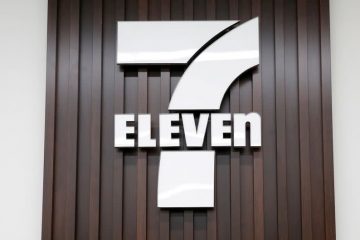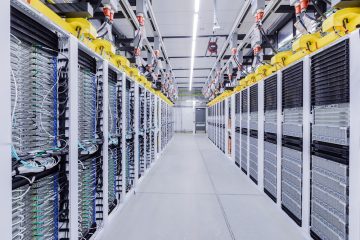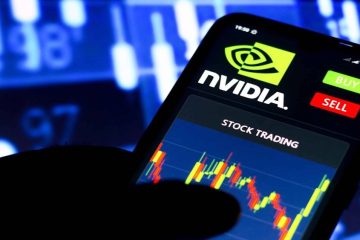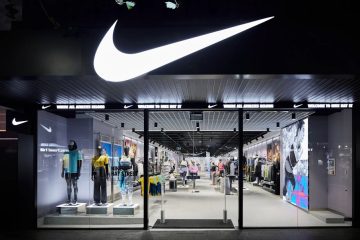5 Retail Stocks to Buy Ahead of Black Friday

1. Negative Cash Flows
“If you can’t make money selling a $ 100,000 car to rich people, how are you going to make money selling a $ 45,000 car to normal people?” Rocker told The Times. He was referring to the upcoming mass-market Model 3. “I’m saying they’re going to lose money on every Model 3 they build and sell,” Spiegel said. Based on Tesla’s Q4 2016 earnings report, he figured the combined average selling price for non-leased Model S and X is about $ 104,000 and the combined average cost of building them about $ 82,000.
2. Competition from the Big Guys
Electric vehicles are still only a tiny fraction of total new vehicle sales in the US. Tesla sold about half of them. In March, according to Autodata, Tesla sold 4,050 vehicles in the US, similar to Porsche. All automakers combined sold 1.56 million new vehicles. This gave Tesla a market share of 0.26%. “Tesla faces a formidable set of competitors, and they’re coming in with guns blazing,” Wahlman told The Times. “Once the market is flooded with electric vehicles from manufacturers who can cross-subsidize them with profits from their conventional cars, somewhere around 2020 or 2021, Tesla will be driven into bankruptcy,” Spiegel said.
3. Tesla’s vanishing tax credits
The federal tax credit of $ 7,500 that EV buyers currently get is limited to 200,000 vehicles for each automaker. Once that automaker hits that point, tax credits are reduced and then phased out. Of all automakers, Tesla is closest to the 200,000 mark. Under its current production goals, the tax credits for its cars could start declining in 2018. This would give competitors, whose customers still get the full tax credit, a major advantage. About 370,000 folks put down a refundable $ 1,000 deposit on Tesla’s Model 3, perhaps figuring they’d get the $ 7,500 tax credit. But as it stands, many won’t. Rocker thinks that this is going to be an issue. The refundable deposit “commits them to nothing,” he said. Those that don’t get the tax credit may just ask for their money back and buy an EV that is still eligible for the credit.
4. The Question of patent protection
Tesla has made its patents available to all comers, thus lowering its patent protections against competitors. Also, the key part of an EV, the battery, is produced by suppliers; they, and not Tesla, own the intellectual property. This is true for all automakers. But Tesla might still be closely guarding crucial trade secrets that are not patented.
5. Musk’s distractions from his day job
Musk has a lot of irons in the fire: Tesla, SpaceX (with which he wants to build a colony on Mars or something), solar-panel installer SolarCity which Tesla bailed out last year; projects ranging from artificial intelligence to tunnel digging; venture capital activities…. “He’s all over the map, from tunneling to flights to Mars to solar roof tiles,” Rocker said. These announcements have the effect of boosting Tesla’s stock: “It’s ‘Let’s get the acolytes excited. Implant in the brain! Let’s buy Tesla stock!’”
6. Execution risk
“Investing is all about possibility and probability,” Yusko said. “Is it possible that Tesla will produce 500,000 cars in the next two or three years? Yes. Is it probable? No.” Tesla has missed many deadlines and goals, and quality problems cropped up in early production models. As Tesla is trying to make the transition to a mass-market automaker, execution risk will grow since mass-market customers are less forgiving.
7. Investor fatigue
Having lost money in every one of its 10 years of existence, Tesla asks investors regularly for more money to fill the new holes. In March, it got $ 1.2 billion. In May last year, it got $ 1.5 billion. Tesla will need many more billions to scale up production and to digest the losses. Tesla has been ingenious in this department. But when will investors get tired of it? “We’re awfully close to the point where people wake up and realize these guys are seriously diluting our equity” with new stock and convertible bond issues, Yusko said. According to The Times, Yusko “is looking for the moment when the true believers begin to lose faith.”
*Update
8. Emerging solid-state battery technology
Musk has invested a lot into his Gigafactory and technology producing lithium-ion batteries. The EV game is all about the best battery technology and a new threat has emerged using solid-state technology. If Tesla does not adopt to these new battery trends consumers would likely gravitate to EVs who posses such technology, because of the longer distance and shorter charge time.










